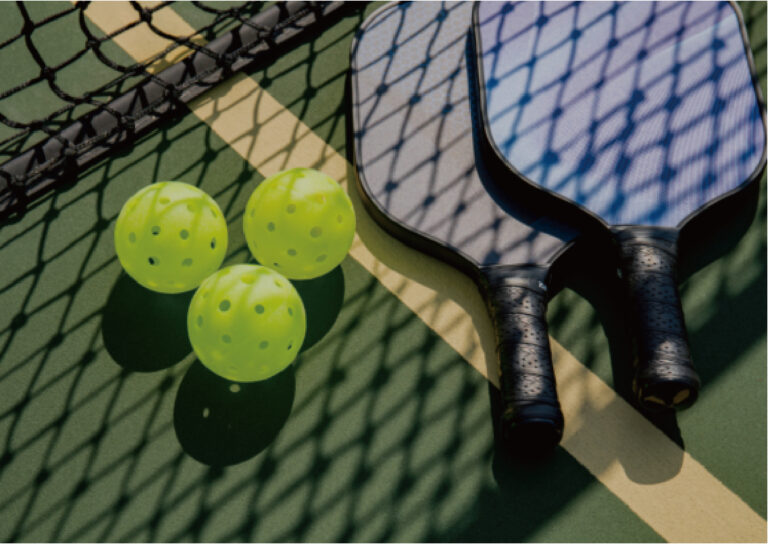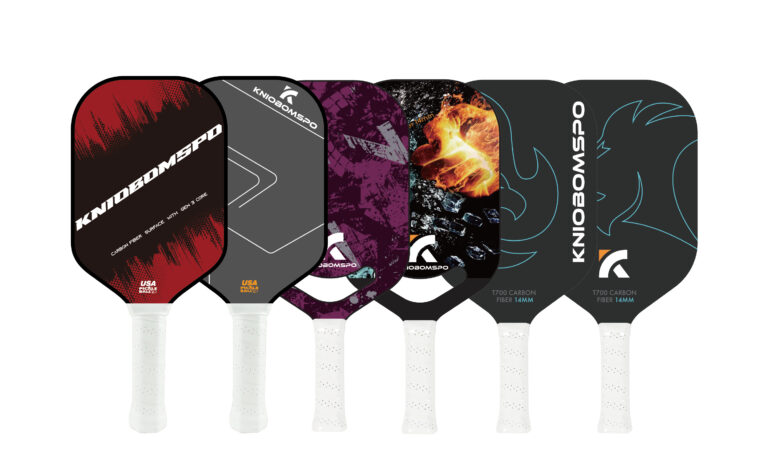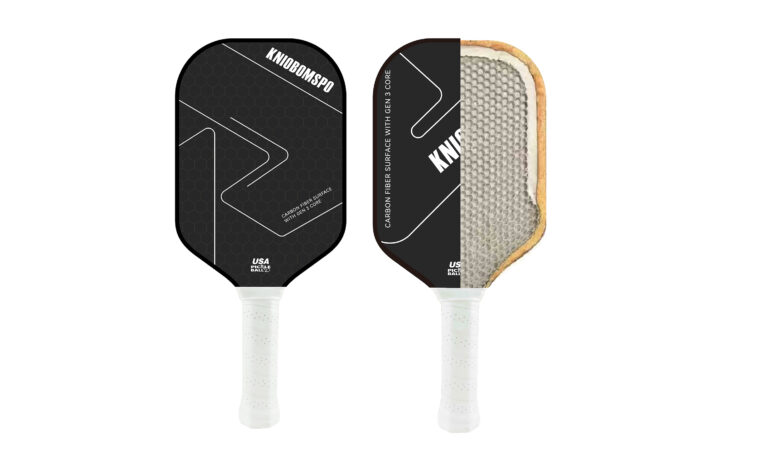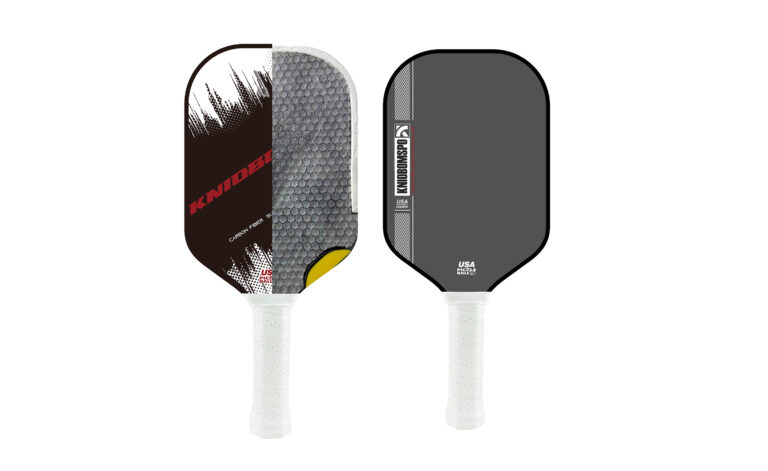Bạn có thể chơi Pickleball ở đâu?
Pickleball, môn thể thao kết hợp giữa quần vợt, bóng bàn và cầu lông, đang nhanh chóng trở thành xu hướng trên toàn thế giới. Pickleball là môn thể thao phổ biến với người chơi ở mọi lứa tuổi nhờ luật chơi đơn giản và tính cạnh tranh khốc liệt. Nhưng làm thế nào để tìm được một sân pickleball tốt?
Bài viết này sẽ cung cấp thông tin về những nơi bạn có thể chơi pickleball trong khu vực của mình, từ công viên công cộng, bãi cỏ, bãi biển, v.v. cho đến các sân thể thao chuyên nghiệp. Mỗi loại mặt sân đều có ưu, nhược điểm và đặc điểm riêng. Bất kể bạn sống ở đâu hay trình độ kỹ năng của bạn như thế nào, bạn sẽ tìm thấy nhiều cơ hội để ra sân và tham gia vào cơn sốt pickleball.
Tiêu chuẩn đánh giá của chúng tôi
.Lý tưởng: Hoàn hảo cho môn bóng ném, mang lại trải nghiệm chơi tốt nhất.
.Tốt: Thích hợp để chơi pickleball, mặc dù có một số nhược điểm nhỏ.
.Fair: Có thể chơi được, nhưng có một số hạn chế đáng kể.
.Kém: Không được khuyến khích chơi pickleball vì có nhiều vấn đề nghiêm trọng.
.Không phù hợp: Không phù hợp để chơi pickleball chút nào.
Các loại bề mặt để chơi Pickleball
Bạn đang thắc mắc có thể chơi pickleball ở đâu? Pickleball trên các bề mặt tự nhiên là một trải nghiệm độc đáo và hấp dẫn. Trò chơi này thú vị hơn và kết nối với hệ sinh thái ngoài trời và môi trường tự nhiên. Sân Pickleball có thể được sử dụng ngoài trời trên các bề mặt tự nhiên, bao gồm đường lái xe, bãi biển, cỏ nhân tạo, bê tông, nhựa đường và đất sét.
Vậy, bạn có thể chơi pickleball ở đâu? Mỗi bề mặt này mang lại trải nghiệm chơi riêng biệt và ảnh hưởng đến lối chơi theo những cách khác nhau.
| Bề mặt | Bạn có thể chơi Pickleball trên bề mặt này không? | Xếp hạng |
| Cỏ/Cỏ nhân tạo | Đúng | Hội chợ |
| Bê tông | Đúng | Tốt |
| Nhựa đường | Đúng | Tốt |
| Xi măng | Đúng | Tốt |
| Đất sét | Đúng | Hội chợ |
| Đường lái xe | Đúng | Hội chợ |
| Bãi biển | Đúng | Nghèo |
Bạn có thể chơi Pickleball trên sân cỏ/sân cỏ nhân tạo không?
Đánh giá: Có thể chơi được, nhưng cỏ có thể không bằng phẳng, ảnh hưởng đến độ nảy của bóng. Cỏ nhân tạo thì đồng đều hơn.
Cỏ mang lại bề mặt mềm mại, dễ điều chỉnh hơn, giúp giảm tác động lên khớp của người chơi. Tuy nhiên, cỏ nhân tạo có thể không bằng phẳng, làm thay đổi tốc độ và độ nảy của bóng. Ngược lại, cỏ nhân tạo mang lại bề mặt đồng đều và bền bỉ hơn, giúp bóng nảy dễ dự đoán hơn và trải nghiệm chơi ổn định hơn. Cả hai đều được ưa chuộng nhờ tính thẩm mỹ dễ chịu và cảm giác tự nhiên.
Bạn có thể chơi Pickleball trên bê tông không?
Đánh giá: Cung cấp một bề mặt chắc chắn, đồng đều với độ nảy dự đoán được nhưng có thể gây khó khăn cho các khớp nối. Tất nhiên, bạn vẫn có thể chơi pickleball trên sân bê tông. Bề mặt bê tông thường được sử dụng cho sân ngoài trời, mang lại một không gian chơi bền bỉ và ổn định. Bê tông tạo ra một bề mặt phẳng, chắc chắn, cho phép bóng nảy dự đoán được và đồng đều. Người chơi có thể di chuyển nhanh và bóng phản ứng ngay lập tức, mang lại trải nghiệm chơi năng động và thú vị.
Nhưng độ cứng của bê tông đôi khi có thể gây bất lợi cho bạn. Ảnh hưởng lên khớp của người chơi có thể rất nghiêm trọng, làm tăng nguy cơ chấn thương và tăng mức độ mệt mỏi trong các buổi chơi kéo dài. Bạn có thể mang giày hỗ trợ và sử dụng giày sân có đệm để giảm thiểu vấn đề này.
Bạn có thể chơi Pickleball trên mặt đường nhựa không?
Đánh giá: Tương tự như bê tông, mang lại tốc độ chơi nhanh, nhưng có thể bị nóng và ảnh hưởng đến lối chơi. Chắc chắn rồi, bạn có thể chơi pickleball trên nhựa đường. Chúng được sử dụng rộng rãi cho sân pickleball, thậm chí cả khu vực giải trí ngoài trời và các cơ sở thể thao cộng đồng. Về mặt thiết kế, chúng giống như bê tông và mang lại một mặt sân chắc chắn, bằng phẳng, hoàn hảo cho những trò chơi tốc độ cao. Độ cứng của nhựa đường giúp bóng di chuyển nhanh chóng trên sân. Nhờ đó, bề mặt này có lợi cho những người chơi thích chơi nhanh và quyết liệt.
Bạn có thể chơi Pickleball trên xi măng không?
Đánh giá: Bền bỉ và dễ đoán trước, nhưng gây hại cho khớp và có thể nóng khi thời tiết ấm áp. Chắc chắn, chơi pickleball trên sân xi măng là hoàn toàn khả thi. Sân xi măng được ưa chuộng ở ngoài trời nhờ độ bền, yêu cầu bảo trì thấp và chi phí xây dựng thấp. Nhờ bề mặt bằng phẳng, chuyển động mượt mà hơn và ít nảy bất ngờ hơn, việc dự đoán quỹ đạo của bóng trở nên dễ dàng hơn.
Tuy nhiên, chơi trên sân xi măng cũng có những nhược điểm. Độ cứng của bề mặt có thể khiến bong gân, căng cơ và khó chịu do va chạm dễ xảy ra hơn. Bề mặt xi măng ướt cũng có thể trở nên trơn trượt, rất nguy hiểm. Hơn nữa, sân xi măng có thể trở nên khó chịu và nóng bức trong thời tiết nóng bức. Điều này có thể ảnh hưởng đến hiệu suất bóng và sự thoải mái của người chơi.
Bạn có thể chơi Pickleball trên sân đất nện không?
Đánh giá: Mềm hơn và dễ chịu hơn, nhưng làm chậm trò chơi và có thể gây ra vấn đề về chỗ đứng.
Mặc dù ít phổ biến hơn so với các bề mặt cứng như bê tông hoặc nhựa đường, pickleball vẫn có thể được chơi trên sân đất nện. Mặt sân đất nện mềm mại và dễ điều khiển hơn bê tông hoặc xi măng. Điều này có nghĩa là bóng sẽ nảy thấp hơn và chậm hơn, cho người chơi nhiều thời gian hơn để phản ứng và tập trung. Nhờ độ mềm mại, pickleball có thể là lựa chọn thoải mái hơn cho những người chơi có vấn đề về sụn hoặc cho những buổi chơi kéo dài.
Hơn nữa, bề mặt mềm hơn có thể khiến bước chân kém vững chắc hơn. Điều này làm tăng nguy cơ trật mắt cá chân hoặc các chấn thương khác nếu người chơi không cẩn thận.
Bạn có thể chơi Pickleball trên đường lái xe không?
Đánh giá: Thuận tiện và dễ tiếp cận, nhưng chất lượng phụ thuộc vào tình trạng và kích thước bề mặt. Chắc chắn, đường lái xe có thể được sử dụng cho môn bóng chày. Đối với những người muốn luyện tập môn thể thao này gần nhà mà không cần sân riêng, đây là một lựa chọn dễ dàng và dễ tiếp cận. Tuy nhiên, không phải đường lái xe nào cũng phù hợp để chơi thể thao.
- Bề mặt nhẵn, đều giúp bóng nảy đều và giảm nguy cơ vấp ngã hoặc trượt ngã.
- Ngược lại, đường lái xe có vết nứt, ổ gà hoặc các đoạn không bằng phẳng có thể làm gián đoạn trò chơi, tăng khả năng chấn thương và khiến trò chơi kém thú vị hơn.
Bạn có thể chơi Pickleball trên bãi biển không?
Đánh giá: Vui nhưng đầy thử thách vì bóng nảy không đều và khó di chuyển trên cát.
Chắc chắn rồi, bạn có thể chơi pickleball trên bãi biển như một lựa chọn thay thế cho sân bóng truyền thống. Đây có thể là một cách tiếp cận thú vị và khác biệt để tận hưởng trò chơi. Pickleball bãi biển là một biến thể và nó thay đổi đáng kể động lực của trò chơi. Cát mềm, không bằng phẳng làm thay đổi cách bóng nảy. Kết quả là, nó kém ổn định và thấp hơn so với trên bề mặt cứng. Cát cũng làm chậm khả năng di chuyển, khiến việc tiếp cận bóng nhanh chóng hoặc thực hiện các pha đánh nhanh trở nên khó khăn hơn.
Bề mặt sân không bằng phẳng làm tăng nguy cơ chấn thương mắt cá chân. Hơn nữa, trò chơi có xu hướng diễn ra chậm hơn, điều này có thể khiến một số người chơi nản lòng. Hơn nữa, việc chơi dưới trời nắng và gió có thể tạo ra những trở ngại mới như chói mắt, cháy nắng và quỹ đạo bóng khó lường.





